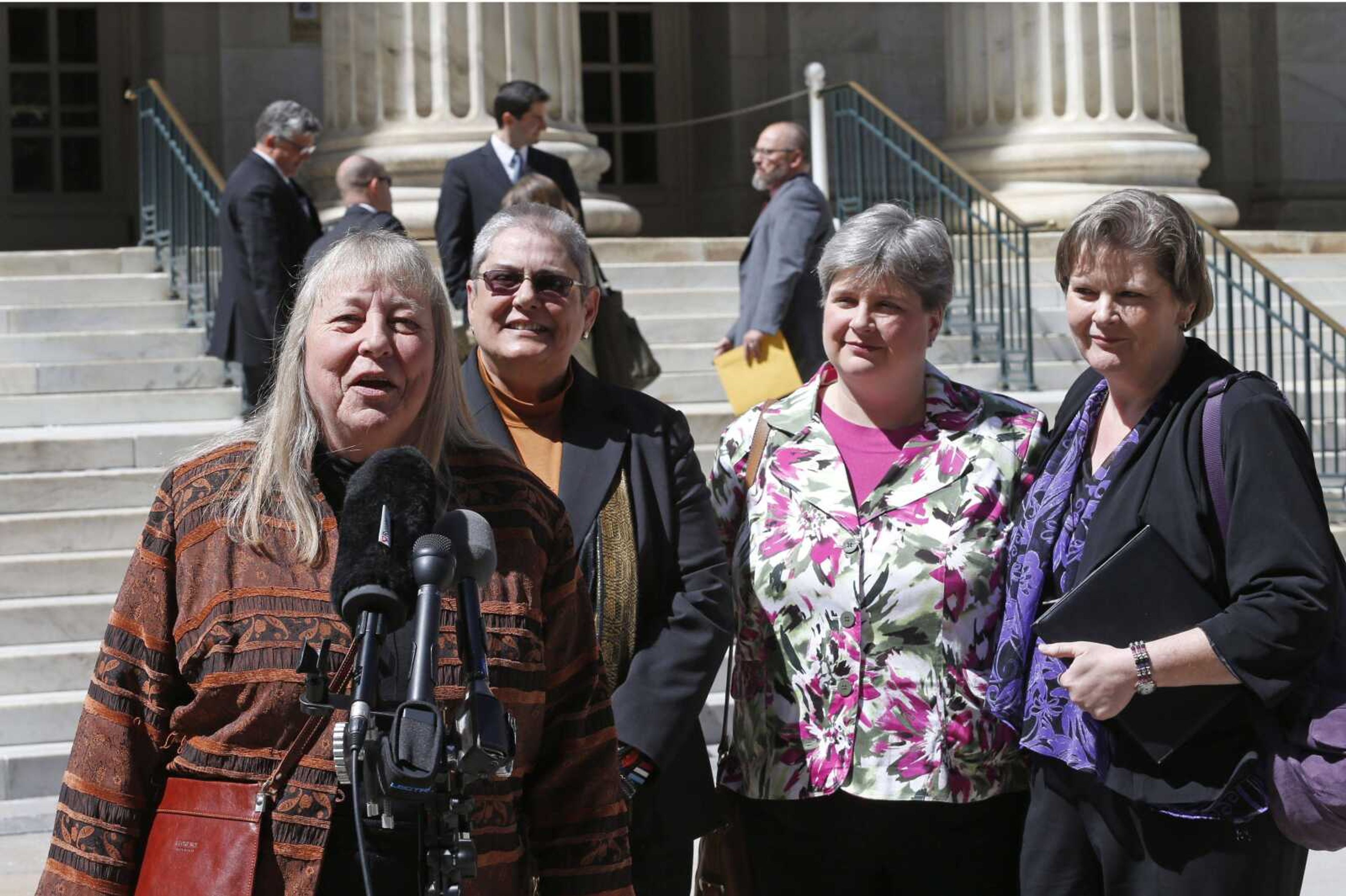Judge asks pointed questions in Okla. gay marriage case
DENVER -- A judge in Colorado who will play a pivotal role deciding whether gays should be allowed to wed in the United States asked pointed questions Thursday about whether Oklahoma can legally ban the unions. U.S. Circuit Judge Jerome Holmes is seen as the swing vote on the three-judge panel that heard the Oklahoma appeal and a similar case from Utah last week...
DENVER -- A judge in Colorado who will play a pivotal role deciding whether gays should be allowed to wed in the United States asked pointed questions Thursday about whether Oklahoma can legally ban the unions.
U.S. Circuit Judge Jerome Holmes is seen as the swing vote on the three-judge panel that heard the Oklahoma appeal and a similar case from Utah last week.
The two cases are the first to reach an appellate court since the U.S. Supreme Court last year struck down the federal Defense of Marriage Act. Since then, gay rights lawyers have successfully convinced eight federal judges that the ruling means courts must strike down laws against gay marriage because they deprive same-sex couples of a fundamental right.
During Thursday's hearing before the 10th U.S. Circuit Court of Appeals panel, Holmes suggested he interpreted the Supreme Court's ruling the same way.
"The state cannot define marriage in any way that would trample constitutional rights, right?" Holmes asked Jim Campbell, the attorney representing the defendant in the case, the Tulsa County clerk.
Campbell, however, contended the court must defer to the democratic process if there is a rational reason for the state to choose who can marry and who cannot.
"The natural, procreative potential of opposite-sex couples distinguishes that group from same-sex couples," Campbell said.
With one judge strongly hinting he supported the lower court rulings that struck down the Oklahoma and Utah bans, and another appearing skeptical of them, all eyes were on Holmes to see where the panel might come down. Holmes last week said that if the yardstick is whether the state has a rational reason to single out gay couples, the same-sex plaintiffs would lose. But if the standard was any higher, they would win.
On Thursday, the judges spent most of their time either questioning Campbell or debating whether the plaintiffs sued the correct person and had legal standing for the court to intervene. The case has taken 10 years to reach this point, partly because another 10th Circuit panel in 2009 ruled the plaintiffs incorrectly sued the governor and attorney general and directed them to name a different party. The plaintiffs then sued the county clerk who denied them a marriage license.
The panel allowed the hearing to run 13 minutes over its 30-minute limit so it could further question Campbell on his arguments.
Oklahoma voters overwhelmingly approved that state's gay marriage ban in 2004. A federal judge in January ruled that the ban violated the constitutional rights of gays, triggering the appeal. That is almost identical to the Utah case, in which a federal judge struck down that state's 2004 voter-approved gay marriage ban in December.
Legal experts say the Oklahoma and Utah cases are almost identical, though Utah does not have the same standing issues as Oklahoma. The justices' decision likely will pivot on the level of deference they believe a court should give voters to deny a group of people the ability to marry.
It might be months before a written ruling is issued. Similar appeals are working their way through four other appellate court circuits, and it is unclear which case would next reach the Supreme Court, which likely will have the final word on the issue.
Two of the plaintiffs in the Oklahoma case, Sharon Baldwin and Mary Bishop, told reporters outside the courthouse that they wanted to marry but have made a point of trying to change the law in their home state rather than travel to one of the 17 states that permits gay marriage.
"We believe that history and justice are on our side, and that is something that no amount of tradition can overcome," Baldwin said.
Campbell told reporters he also felt the hearing went well but declined to make a prediction based on the judges' questioning.
"I don't play the game of reading judges," Campbell said. "It's a dangerous game."
------
Associated Press writer Colleen Slevin contributed to this report.
------
Follow Nicholas Riccardi on twitter at HYPERLINK https://twitter.com/NickRiccardi and Kristi Eaton at https://twitter.com/KristiEaton.
Connect with the Southeast Missourian Newsroom:
For corrections to this story or other insights for the editor, click here. To submit a letter to the editor, click here. To learn about the Southeast Missourian’s AI Policy, click here.









